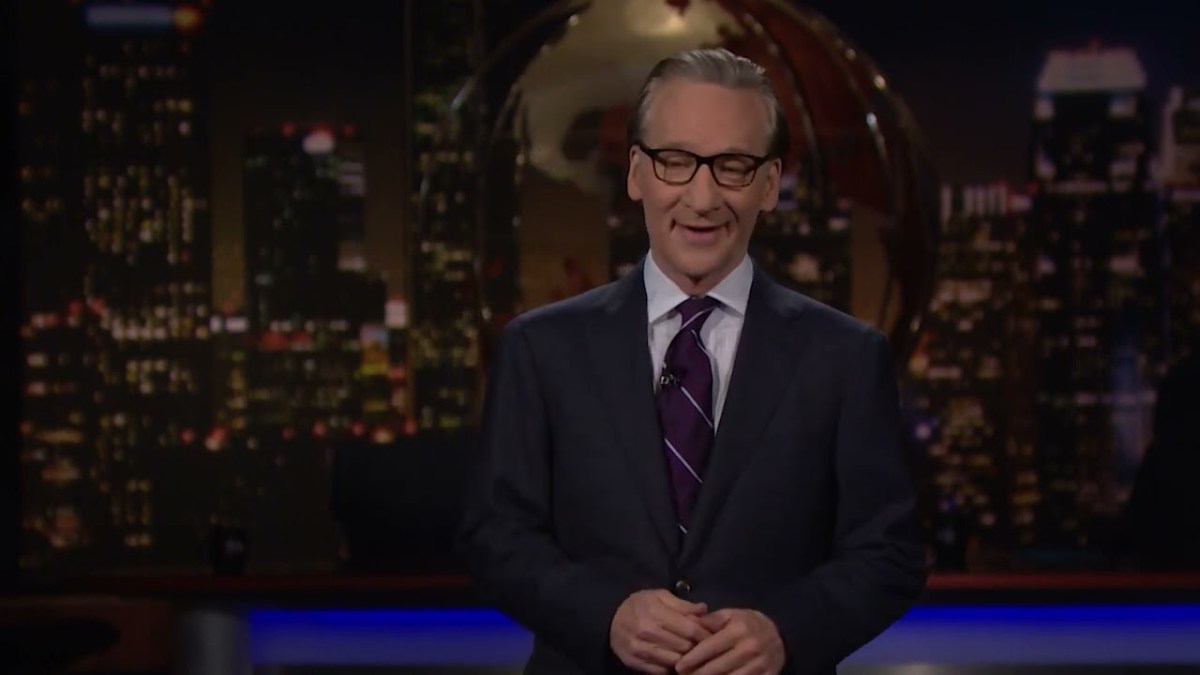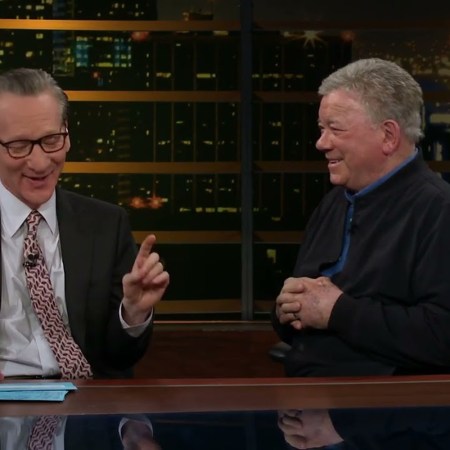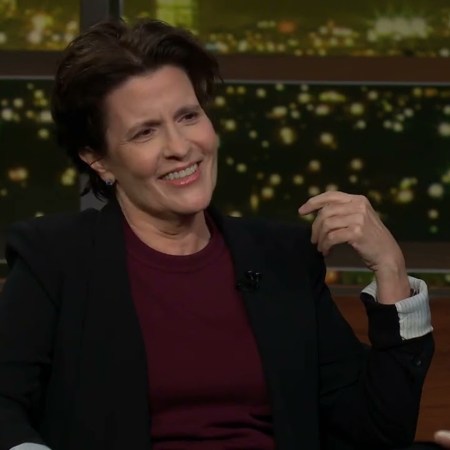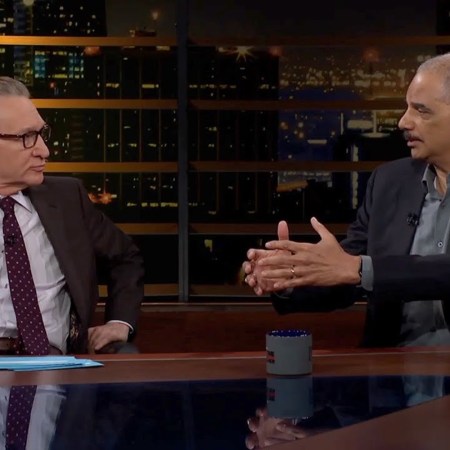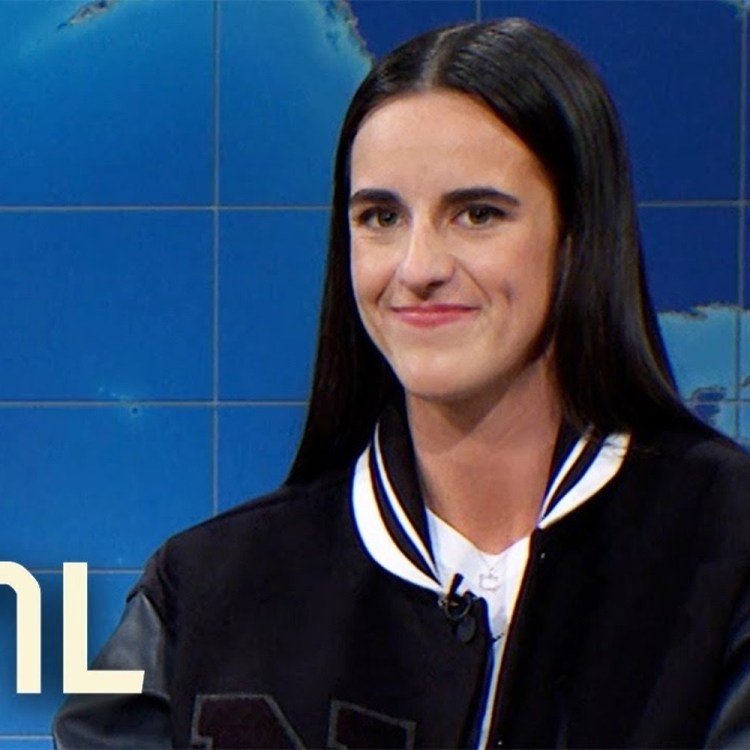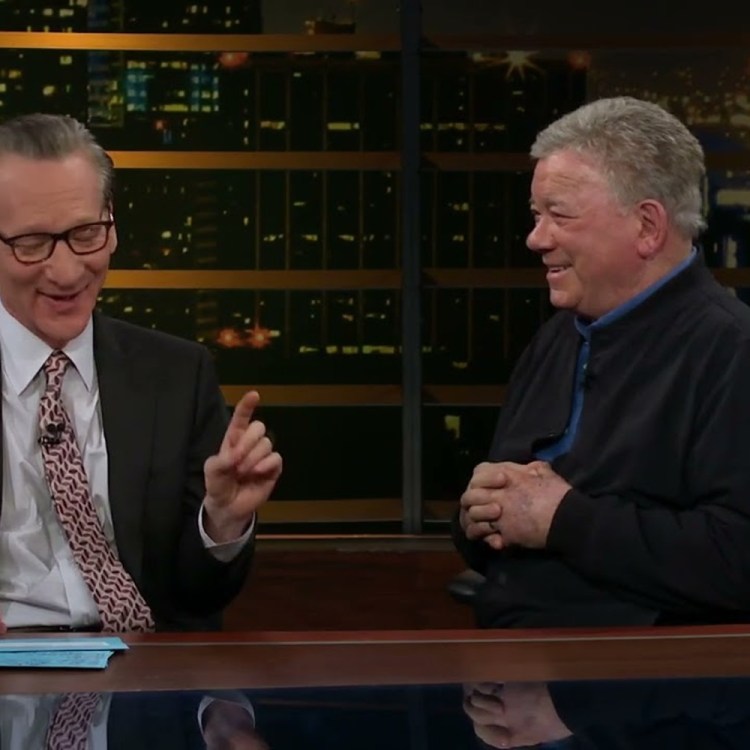Bill Maher doesn’t always get person on episodes of Real Time, but every once in a while you can pick something up about his offscreen interests. On the latest episode, for one thing, he held forth on his favorite holiday. “I love Halloween — the one time of year we dress up and pretend to be something we’re not,” Maher said. “Also known as Instagram.”
Maher went on to address horror movies — he’d just seen Halloween Kills, which he enjoyed — and the phenomenon of panicked news reports warning parents to keep an eye out for weed edibles that resemble candy. “Like I’m going to waste my stash on children,” said Maher.
That was followed by rapid-fire ruminations on the Vatican, supply chain issues and Facebook’s new name — with Maher noting that he had read about Facebook becoming Meta on Facebook, which meant that it might not be true.
Maher’s first guest was former White House Press Secretary Sean Spicer, who has a new book out titled Radical Nation. Maher stated that he didn’t intend this as a hostile interview, but immediately pressed Spicer on his book’s subtitle (“Joe Biden and Kamala Harris’s Dangerous Plan for America”), asking why so many conservative authors were taking this tone. “Really? Dangerous?” Maher asked.
“Let’s talk real talk and not go to talking points,” he continued. But that ended up being where it went regardless, with Spicer equivocating on whether or not Joe Biden had won the 2020 election and Maher’s frustration (understandably) increasing. It was all too reminiscent of Trump legal advisor Jenna Ellis’s appearance on the show almost a year ago — another moment in which Maher spoke of trying to bridge partisan gaps and got talking points in return.
“You’re like that kid in school who has to do a book report, [and] reads one page very carefully that nobody else read and then does a thing on that, and we don’t know what you’re talking about,” Maher said. He went on to argue that this was a microcosm of the state of partisan divide in the country — and that that, in turn, explained the levels of gridlock the nation was experiencing.
The Atlantic’s Caitlin Flanagan and Senator Chris Coons joined Maher for the evening’s panel discussion, which opened with a discussion of the infrastructure bill. Coons offered a good overview of what was in the current iteration, with a breakdown of how everything would be paid for; Maher hailed the fact that measures to combat climate change had remained in the bill, a decision Flanagan also supported.
Maher then brought up the subject of a carbon tax. Coons mentioned that he and then-Senator Jeff Flake had led a bipartisan effort in a previous Congress to make such a tax a reality, but noted that right now, not all 50 Democratic Senators were on board. Flanagan took the historical view, citing Rachel Carson’s Silent Spring and the Nixon administration’s work on the environment, but arguing that the Reagan administration was where the environment had become a more polarizing partisan issue.
It bears mentioning that, during the panel, Maher would apologize to Coons whenever he cursed. Finally, in the second half of the discussion, Flanagan asked him why he was doing that. Coons is a Senator, Maher explained; he shouldn’t have to hear bad language. For his part, Coons appeared to find this logic hilarious.
In the second half of the discussion, Maher argued — in so many words — that COVID in California was now at the endemic stage and some of the restrictions that had been put into place for it should come to an end. Flanagan concurred, while Coons made the case for increased vaccinations around the globe, pointing out the dangers of a variant developing somewhere else and undermining the work done since the pandemic began.
The discussion closed with Flanagan discussing the difference between heroic masculinity and toxic masculinity — and making the argument for positive mascuiline role models for boys, something that prompted Coons to reflect on his own experience as a father. This, in turn, led to the two debating the role of gender in selecting heroic role models — which brought that segment of the episode to a close.
The bulk of this episode’s New Rules found Maher arguing against redefining certain words. With a tip to the hat to George Carlin’s “Seven Words You Can Never Say on Television,” Maher focused on eight — “hate, victim, hero, shame, violence, survivor, phobic and white supremacy.”
“Focused” might not be the best word, though — Maher had a lot of ground to cover here, and he shifted between doubling down on some of the points he’s made in other episodes this season and going for a punchline when one was handy. There were also a few shorter segments when Maher seemed to address some of the criticism that he’s accrued over the years — specifically, whether or not he’s Islamophobic or engaging in fat-shaming. Maher’s argument was, essentially, that he doesn’t feel like those phrases accurately describe his positions.
But this was also a segment where Maher invoked everyone from the guy on the cover of Nirvana’s Nevermind to parents who say their child is their hero, and which attempted to cover everything from the Democratic Party’s electoral chances to the spread of the word “hero” during the pandemic. Maher’s take on what he called “word inflation” didn’t lack for ambition; neither did his concluding note.
“You can try to change reality by changing the words, but you can’t,” he said. “It just stops you from dealing with them.” But it still felt like there was a lot unsaid — and the potential for more debate to be had. Language does evolve, after all — and without acknowledging that, the segment kept one tantalizing line of inquiry off-limits.
Thanks for reading InsideHook. Sign up for our daily newsletter and be in the know.
